2020 Huadi Literature List Annual Short Stories List (Sorted by the first letter of the author’s name)
1. Emma “Music of Mustard Inn” “Chinese Writers” Issue 3, 2019
2. Chen Chongzheng “Remembering the Power of Guanyin” “Writer” Issue 3, 2019
3. Chen Goodbye “Circus is Coming” “People’s Literature” Issue 7, 2019
4. Chi Zijian “Steamed Horse Boots” “Zhongshan” Issue 1, 2019
5. Du Lan “Mihuo” “People’s Literature” Issue 1, 2019
6. Huang Jinshu “Late Youth” “Tianya” Issue 6, 2019
7. Ning Ke “Train” “Harvest” Issue 5, 2019
8. Shao Li “Father on the Rooftop” “Harvest” Issue 3, 2019
9. Ye Zhaoyan “Wu Fei and Aunt Wu Fang” “Young Writer” Issue 7, 2019
10. Zhang Huiwen “Angel” “Literary Port” Issue 7, 2019

1
Emma “Must Seed Inn”
A Flower of Chivalrous Ideal
This is a novel with a novel narrative that integrates traditional martial arts stories with modern social life, trying to reconstruct a new world of chivalrous in the secular world. The strongest feeling when I first read this novel is that it is “fresh and lovely”. Xiao Wan, the owner of Mustard Inn, can be called an ideal flower full of chivalrous spirits blooming among secular sentient beings.
The novel is a cross-narrative between reality on the shore and the high shore, and the character of Xiao Wan is fully established. She is an “escaper” with the texture and pain of life in the city, and is also a “bystander” of the restless and uneasy soul in our current social life. The novel has a smooth and lofty style, and has the “beauty of literature and the truth of thought”, which ultimately points to the issue of human soul exile and placement.
■Xu Fuwei
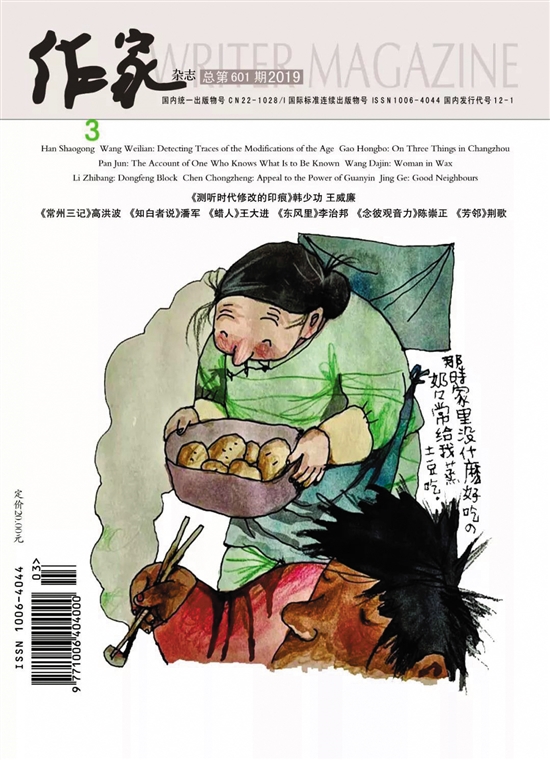
2
Chen Chongzheng’s “Remembering the Power of Guanyin”
The post-80s writer brings a new experience
If the increasingly bizarre situation has caused the heroine’s inner belief to collapse, when she wants to get rid of her “life that makes her tremble”, she can only destroy herself in a simple and cruel way.
Survival state is never easy as the creative theme of literature Komiks, but it is precisely because a good work plays a transcendent cognitive and guiding role that this theme becomes the goal of writers’ pursuit and competition.
This novel by Chen Chongzheng brings us surprises. With his unique imagination and pioneering narrative style, as well as his in-depth thinking of “need to guess, need to guess riddles…”, he disassembled and reassembled real life, opening up a channel of inspiration for readers.
■Wen Huan
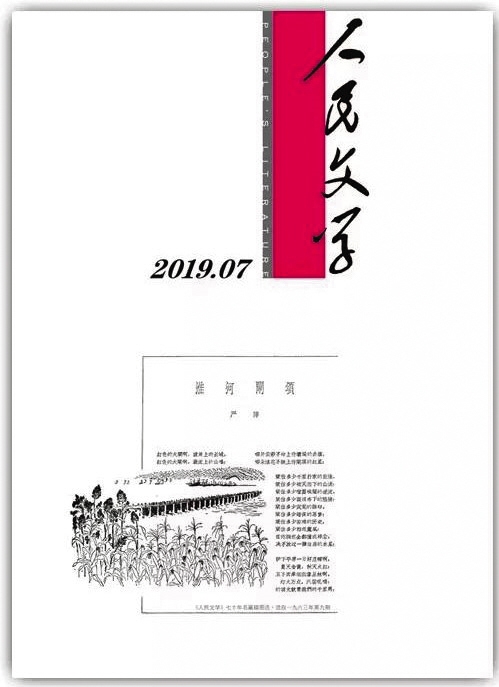
3
Chen Goodbye “Circus is Coming”
The spiritual room for middle-aged people in the small town
The young Chen Goodbye is well-known in the literary world for a series of “county town novels”.
He is still a young man at present, but he has stretched his brushstrokes ahead of his age. But this time, he used the situation of the young people who were good at in the squeeze of material survival as the specific background and details of the characters who grew up further. He emerged from his livelihood, just like a tenacious spider who had to look into the sky during the rainy season. “The Circus is Coming” showed a strange spirit, and we got a good novel with “It’s about to be” as the driving force of time and space construction.
Not only that, the intertextuality between “circus” and people in small towns is another profound meaning in the novel. Can imagined stories really transcend specific life? The fact that there is originally something that needs to be “not to be said” is what is the meaning of the novel trying to “speak”? The difference between the spirit of young people and the enthusiasm of young people is probably because middle-aged people start to set up spiritual space and want to use this to reactivate the “dream pursuit” journey.
■Shi Zhanjun
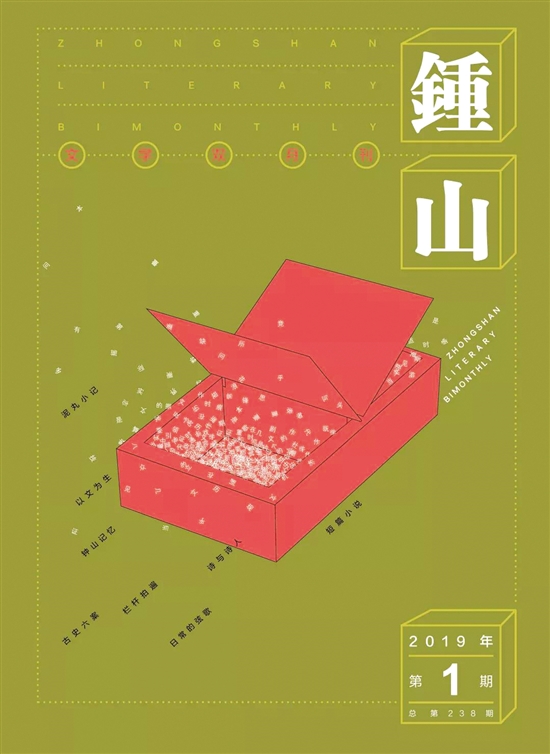
4
BabaylanChi Zijian’s “Steamed Horse Boots”
The value of the life genealogy is immortal
As an excellent writer who has been in the literary world for many years, Chi Zijian seems to have few short stories in recent years. “Steamed Horse Boots” this short story is a bit like accumulating strength.
In a short time, Chi Zijian incorporated many elements such as history and reality, war and human nature, animals and human beings, and wrote the desolation of history and the warmth of human nature. In the heavy snow all over the sky, Chi Zijian’s graceful and calm brushstrokes still maintain her unique softness and considerate even though she shows the coldness and cruelty of the hostile environment. Whether it is wolf nature, human nature, death, or survival, they all maintain immortal value in the genealogy of life.
The novel adopts the “narration from a distance” method to allow the legend of the father to slowly unfold in the vision of “I”. It is the spirit of modern novels that makes such old stories of the Anti-Japanese United Nations shine with new literary brilliance.
■Wang Gan
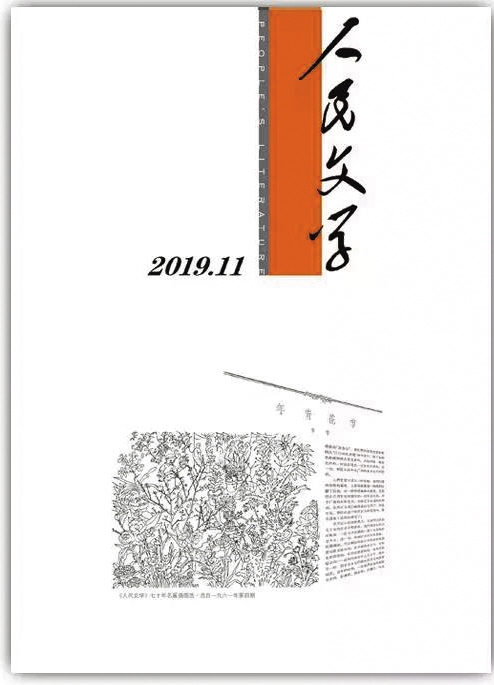
5
Du Lan’s “Mihuo”
Cultural Palette and Mongolian Narrative
Du Lan’s short story “Mihuo” first grasped me with a personality style. There is no doubt that she belongs to the Mongolian people – sheep walking in the wind and snow, “Ga Le-Ga Le-Cinema” shocked the earth. However, the author was born in 1999, which made me connect the language of my work with the Internet. Discourses like “Youths are keen on games” are full of the color of the Internet youth subculture. The language style of the Internet clan and the long-lasting language like Mongolian tribes interact to form a slightly dazzling, uncomfortable but full of personality.
The works are premiere with fables. A baby appeared in the ram’s belly, a paradoxical and weird ominous sign, so the “prairie faded”, and the worldKomiks suddenly changed; “I was shocked…” A series of mysterious and strange suspense symbols emerged in the middle of the real world. The symbols and pictures that cannot be explained and cannot be explained clearly constitute the charming allegorical characteristics of the work.
■Jiang Bing

Huang Jinshu’s “Late Youth”
The Elegy of Desiring Change
Huang Jinshu’s narrative has wild imagination and distinct style, stirring up the mystery and vastness of the waves in the South China Sea. His short story “Late Youth” integrates time, history, memory and identity, which is thought-provoking. Although that mysterious young man has the ability to curb the flow of time, he still cannot catch up with the threshold of the great turning point in history. This extreme juxtaposition reflects the insignificant lonely coldness of an individual in the face of the torrent of history.
Magic is both an unfulfilled hope and a desire. The elegy of the change of Cinema, CinemaBabaylan presents us a strange fable of modernity. The late youth, that is, the unfinished youth, is not only an inquiry of cultural identity by the Chinese in Southeast Asia, but also a world-wide unfinished Komiks reveal and break through the unfinished modern Chinese literature.
■ Wei Wei

7
Would rather “Train”
The Shadow of the Years The Voice of Time
Thinkers would rather be good at literary exploration. The novel uses the wildness of the former boys to lead readers to take the whistling train and capture the train from Beijing LiuliBabaylan Factory to YongdingmenThe shadows of the years on the station capture the secrets of Xiaoqins’s growth center spirit and the lost innocence.
In the depths of history and human nature, in the residential compound and the story space outside the capital, the sound of the train whistle turned into the sound of time in the novel, and rushed towards the youth with a bang, gradually becoming the ideal light of the novel, and also creating the author’s new historical narrative.
The narrative of the works is concise and spiritual, resolute and rhythmic; the novel is rough and warm, desolate and clear.
■Zhang Yanling
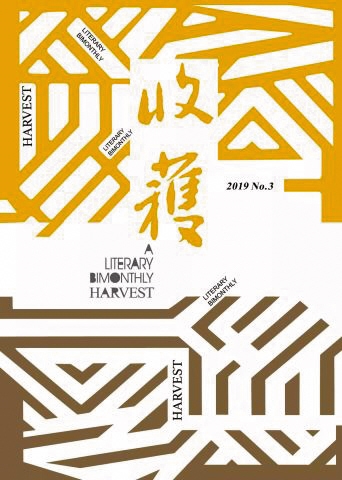
8
Shao Li’s “Father on the Rooftop”
Speculation why he couldn’t extricate himself
“Maybe I changed my faith after leaving that city.” This is the first sentence of the novel “Father on the Rooftop”. It is precisely because of this sentence that I value this novel. Especially the word “faith”, although slightly abrupt and Babaylan is mentioned in one stroke, it implies some differences in this work.
After reading it, I found that this is indeed a novel with profound connotation, a novel that touches the world of faith and inner self. The novel constantly reproduces the ups and downs and fluctuations experienced by his father who committed suicide by jumping off a building. We have also learned about the bravery, righteousness, passion, stubbornness and frustration of his father. The most memorable scene is the details of his notes.
Stripping the surface of the narrative, we have a glimpse of the father’s Babaylan‘s soul, and we also know that he is or has encountered a mental crisis. What we want to know most is undoubtedly why he can’t extricate himself?
So, do we know? No, we can only speculate. And this returns to the first sentence of the novel.
■Bao Shi
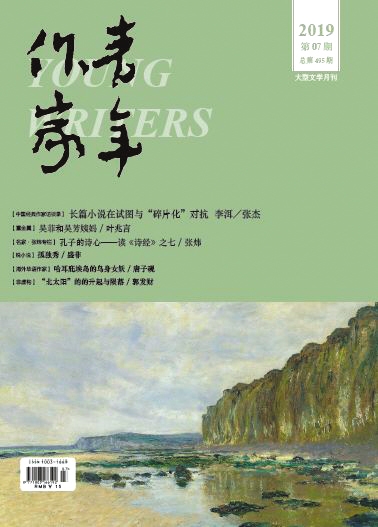
9
Ye Zhaoyan’s “Wu Fei and Aunt Wu Fang”
Exclusive artistic dialectics
Ye Zhaoyan beautifully completed a prepared artistic fight with “Wu Fei and Aunt Wu Fang”, which was also a very challenging writing.To take risks, he wants to write short stories that are “completely different” from others.
Incredible that this short story, which is less than 10,000 words, writes the ups and downs of life grudges and irresistible human entanglements of a pair of twin sisters, full of destiny and tragedy.
The novel has a complete structure from the big picture, and the details are rich and vivid. The characters have a fullness that is about to emerge. It not only greatly expands the artistic space of short stories that reflects history and reality, but also conveys the tremor, despair and helplessness deep in the characters’ souls.
The story tells the story contains sadness in indifference and concern in alienation. The artistic dialectics of small and big, light and heavy unique to short stories can be realized.
■Gu Guangmei
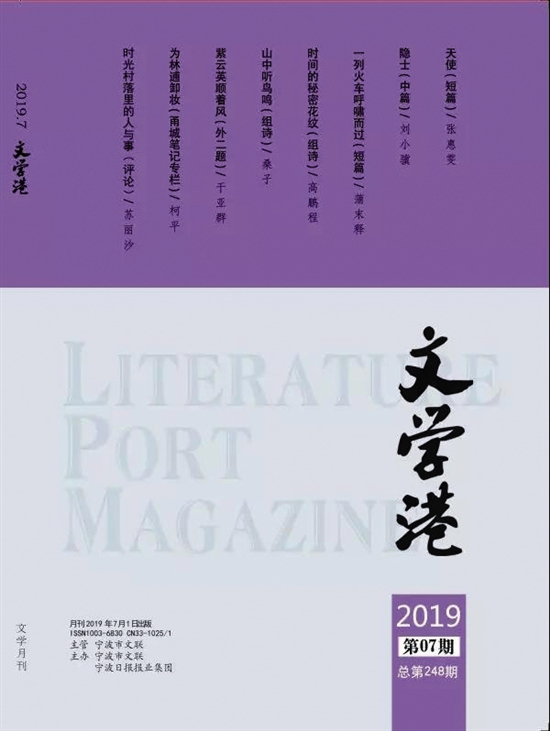
10
Zhang Huiwen’s “Angel”
Find inner comfort
” Angel” is a delicate work full of sentimental feelings. Around my father’s funeral, “I” who returned from a foreign land, with a desire to find the warmth of happy growth and blood ties, and tried to relive the love with the “angel” in my heart when I was young.
However Komiks, when he walked through this once familiar “small place”, he found that all comfort became a hard, profit-oriented reality, and all admiration and longing turned into simple carnal joy. The emotions between people are constantly alienating, but the calculation of each other’s interests has become a daily routine. They form a close isomorphic relationship with their hometown’s cold and mud-covered streets, so that the returning wanderers can no longer find inner comfort.
If we think that “Angel” is a simple nostalgic work that conveys the author’s questioning the utilitarian reality of Chinese society, it seems that it is not bad. But I prefer to regard it as a fable, because every time we return to our hometown, we always preset countless beautiful scenes in our hearts, and we will eventually be smashed without exception, but we are happy.
■Hongzhigang